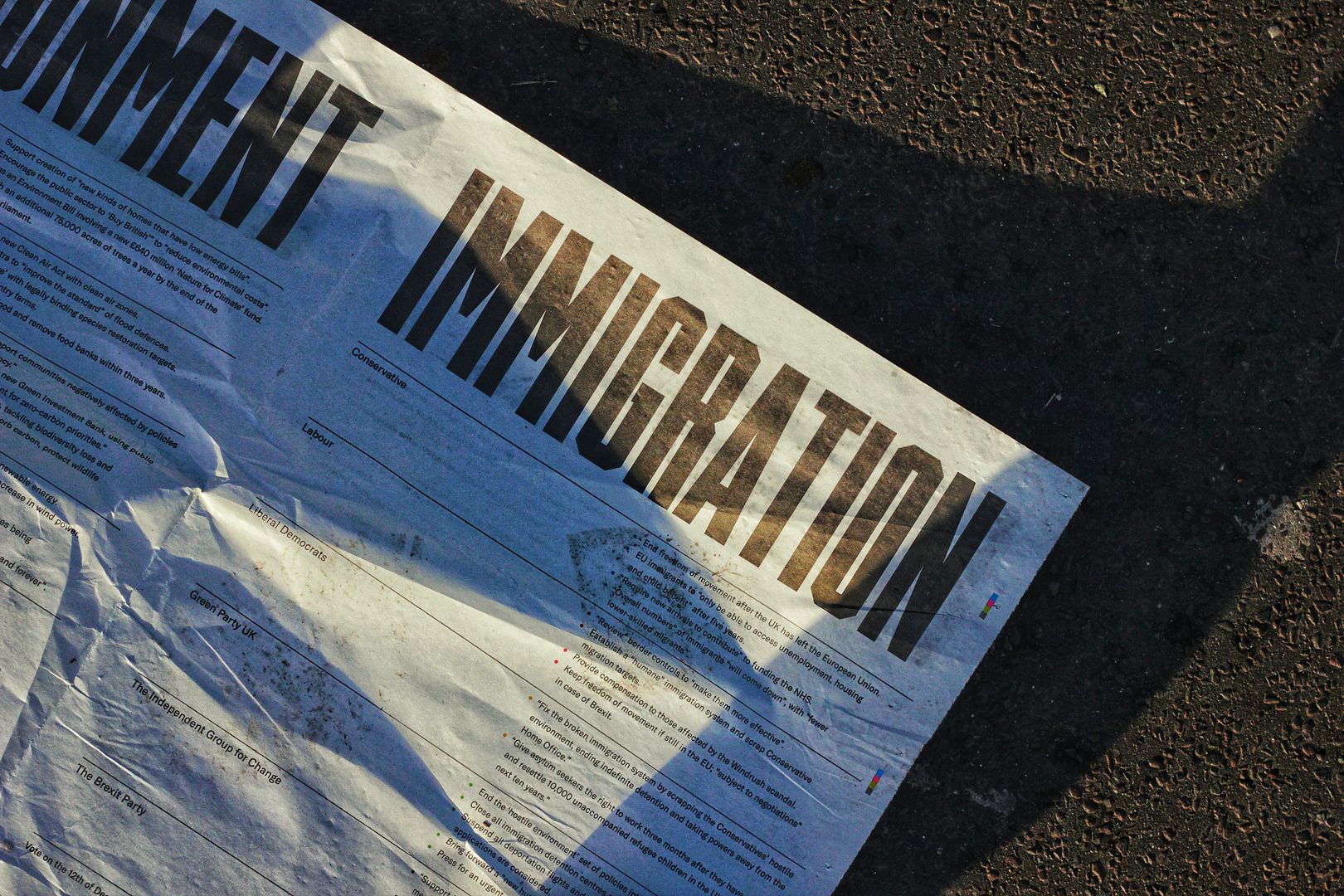
Amnesty International USA released its recent report, Dehumanized by Design, which documents conditions at the El Paso Service Processing Center (EPSPC), one of the United States’ most extensive immigrant detention facilities. Vancouver immigration lawyer and activist leader with Amnesty International, Katrina Sriranpong, explains that the immigration detention system does not simply fail detainees. It is structured to dehumanize them.
The Report’s Key Findings
In April 2025, Amnesty investigators visited the El Paso facility, conducting interviews with detainees, attorneys, and advocates. Their conclusions were clear: violations are not accidental but entrenched practices.
Arbitrary Detention:
Many detainees are asylum seekers or long-term residents with strong community ties, yet they remain confined for months without individualized hearings. Detention becomes the default, not the exception.
Denial of Due Process:
Amnesty documented systemic restrictions on access to legal resources. The termination of the Legal Orientation Program has left detainees without even basic knowledge of their rights. Law library access is severely limited, and legal calls are often delayed or denied. Without legal representation or basic orientation, detainees are effectively stripped of their ability to defend themselves.
Weaponization of the Alien Enemies Act:
Venezuelan nationals were singled out and classified as “high-risk” or gang-affiliated under provisions of this antiquated law. This labeling, often based on tattoos or vague suspicion, bypassed meaningful review and accelerated deportation. The Alien Enemies Act dates back to 1798 and was intended for use during wartime against hostile foreign powers.Applying it to immigration enforcement in peacetime not only stretches its purpose but also undermines fundamental constitutional protections.
Sriranpong states that, “Trump has created a false narrative of ‘invasion’ at the border and accuses immigrants of being criminals or rapists. This is based on white supremacist conspiracy theory that illegal immigrants are invading the USA.”
Inhumane Conditions:
Detainees reported being served expired food, denied access to potable water, neglected medically, and subjected to abusive solitary confinement. These conditions compound the psychological trauma already experienced by asylum seekers fleeing persecution.
Legal and Human Rights Implications
From a constitutional perspective, the findings are stark. Immigration detention, though civil in name, increasingly mirrors punitive incarceration. Detaining individuals without timely hearings undermines the due process guarantees under the Fifth Amendment, while denying access to counsel erodes the adversarial system that is fundamental to U.S. justice.
The systematic denial of legal orientation and access to an attorney also raises concerns under the Equal Protection Clause. If some detainees have access to legal knowledge and representation, while others do not, the fairness of the proceedings is compromised at their core.
Internationally, the United States has obligations under treaties such as the International Covenant on Civil and Political Rights and the Convention Against Torture. Arbitrary detention, prolonged solitary confinement, and discriminatory treatment based on nationality breach those commitments. When abuses are systemic, responsibility rests with the state, not individual actors.
Why the System Produces Abuse
The report’s title reflects its core finding. These violations are not the result of rogue actors but rather stem from the design of the detention system.
Institutional Incentives:
Immigration enforcement agencies are rewarded politically and financially for detaining individuals, rather than releasing them. Facilities often operate under contracts that encourage maximum bed occupancy.
Isolation as Control:
Transfers, solitary confinement, and restrictions on communication weaken detainees’ resistance and limit outside scrutiny. Families and lawyers often struggle to track the locations of individuals, making advocacy nearly impossible.
Labeling Entire Groups:
Populations such as Venezuelans are branded as dangerous without evidence, justifying blanket detention and quick deportations. This collective punishment approach undermines the principle of individualized justice.
Secrecy:
Restricted access to facilities for monitors, journalists, and advocates suppresses accountability. Without transparency, abuse thrives unchecked.
Human Consequences
Behind every legal violation is a human life. Amnesty’s interviews revealed individuals unable to contact family for months, those with chronic illnesses denied medical care, and asylum seekers abandoning claims out of despair. The harm is not only physical and psychological but legal, leading to wrongful deportations and family separations.
Sriranpong further explains, “There is a targeting of recently arrived asylum seekers under the Biden administration. The asylum seekers can get deported for simply going to immigration court or an immigration meeting. This new process is called ‘expedited removal’ where ICE agents, sometimes in plain cloth, detain people at courthouses before they even see the judge. This eliminates the safety of even going to present themselves in front of an immigration judge. Under the Biden administration, a lottery system was implemented where hundreds of thousands of people were told to secure an appointment with immigration. Once the appointment was confirmed and scheduled, they were allowed to work in the U.S. However, Trump cancelled the status of all these people waiting for their appointment, which automatically made them vulnerable. He referred to these people as ‘unlawful’ or ‘illegal.’ As an immigration lawyer, the changing landscape is difficult to understand, so as an immigrant with limited language skills, it would be extremely difficult to know your rights under the new Trump administration.”
Communities live in fear, children are separated from parents, and the rule of law itself is weakened when due process becomes negotiable. In the long term, the erosion of rights for migrants creates a dangerous precedent. When governments normalize denying fundamental protections to one group, those same protections become fragile for everyone.
Pathways to Reform
The solutions are achievable if political will exists:
Alternatives to Detention:
Community-based case management and supervised release are effective and cost-efficient. Programs piloted in the U.S. have already shown compliance rates above 90 percent, demonstrating detention is not necessary for most immigration cases.
Right to Counsel:
Congress should guarantee universal legal representation in immigration proceedings. In criminal law, the right to counsel is recognized as essential. Immigration proceedings, though technically civil, often determine whether a person lives in safety or faces persecution. The stakes are too high to leave detainees unrepresented.
Transparency and Oversight:
Independent monitors must have unrestricted access to facilities and require public reporting. Transparency is the only way to restore accountability.
Limits on Detention:
Release should be the default, with detention used only when risk is clearly established. Individualized risk assessment, not blanket presumptions, must govern decisions.
End Use of the Alien Enemies Act:
Immigration policy must not target individuals based on nationality or appearance. Retiring this outdated law would be a critical first step toward fairness.
A Legal and Moral Imperative
The El Paso report is not simply about one facility. It is a case study in how immigration detention can be engineered to degrade rather than protect. For lawyers and advocates like Katrina Sriranpong, the findings underscore the urgency of litigation, legislative reform, and public pressure. Sriranpong argues that detention facilities must meet international human rights standards, legal advice must be available for all detainees, and the targeting of specific groups, such as Venezuelans, must stop.
The United States must now make a choice. It can continue to tolerate a system that thrives on secrecy and abuse, or it can align immigration policy with constitutional principles and human rights obligations. The choice is clear. To persist in a system “dehumanized by design” is to accept injustice as policy. To reform it is to affirm that dignity and rights belong to every person, regardless of immigration status. The credibility of American democracy depends on that choice.




